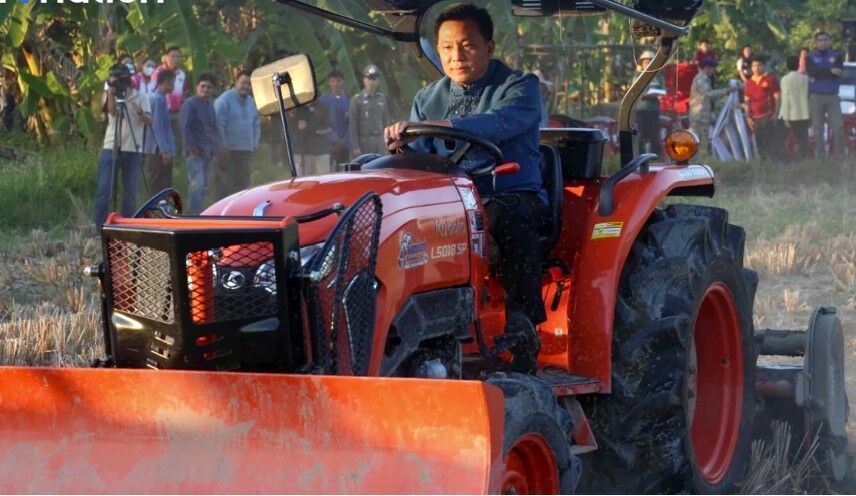Governor’s bold move against toxic haze: Chiang Mai’s war on farm fires heats up

Chiang Mai Governor Nirat Pongsitthithavorn is leading the charge against the annual curse of PM2.5 pollution caused by the burning of agricultural residue.
In a teleconference with the province’s 25 district chiefs, he laid down strict instructions to tackle the issue head-on.
The provincial administration has already taken a decisive step by banning unauthorised burning of farm waste from January 1 to April 30. Farmers must now obtain approval from the district office before resorting to burning, and a cutting-edge app named FireD will be used to monitor and report the process.
Governor Nirat is not merely relying on restrictions, he has tasked the district chiefs with exploring alternatives to burning. Farmers are being encouraged to adopt more eco-friendly practices, such as ploughing and burying residue or selling it to energy recycling plants. These innovative plants will then transform the waste into compressed energy bars, creating a win-win situation for both farmers and factories.
The governor revealed that 1,124 burning spots, covering a staggering 140,569 rai (approximately 224 million square metres), have been registered. However, the district chiefs have yet to evaluate the requests and propose alternative methods.
In a bid to ensure the efficacy of these measures, Nirat urged the district chiefs to personally verify the necessity of burning farm waste and explore alternative methods. He suggested that the district chiefs provide support to farmers, such as supplying fuel for tractors to aid in ploughing and burying the residue.
Taking a comprehensive approach, all municipalities in Chiang Mai have been instructed to eliminate burnable garbage from communities, aiming to prevent residents from resorting to burning.
Incentives campaign
Post-meeting, San Kamphaeng district chief Pinyo Puasriphan pledged active engagement in convincing farmers to opt for ploughing and burying their farm residue on a substantial 8,510 rai of farmland. His office has initiated campaigns offering fuel assistance to farmers embracing these eco-friendly methods.
Mae On district chief Chalit Thipkham echoed the sentiment, expressing his commitment to persuade farmers in 115 registered burning spots, covering 27,000 rai of farmland, to adopt alternative methods. His goal is to avert burning on at least 12,000 rai of farmland.
Deputy Governor Thossapol Phuanudom shared that the provincial administration is fast-tracking efforts to incentivise energy recycling plants to purchase farm waste. This move would contribute to creating energy-compressed bars for use in thermal power plants or factories, reported The Nation.
In a final push towards sustainability, Charoen Pimkhan, Chiang Mai’s chief agriculture officer, announced that 75,000 families have enlisted to plant 500,000 rai of rice. These families will receive support in handling leftover hay and residue, with the provision of machines for compressing hay, making it a valuable resource for animal feed or sale at 40 to 45 baht per bale.
Latest Thailand News
Follow The Thaiger on Google News:


























